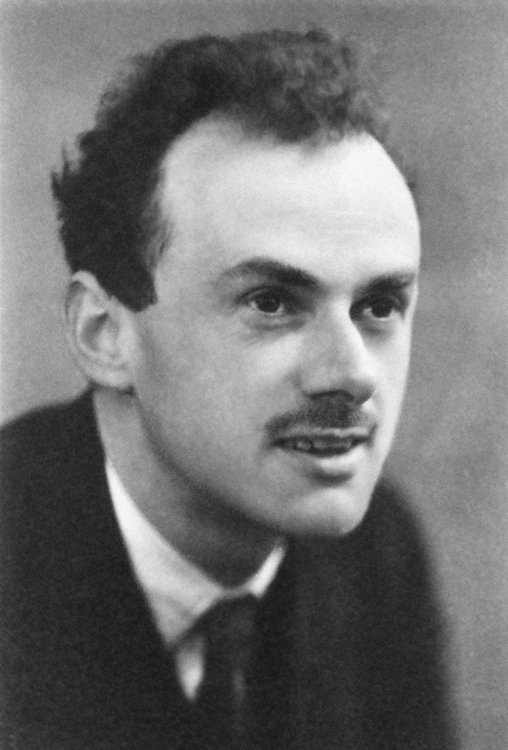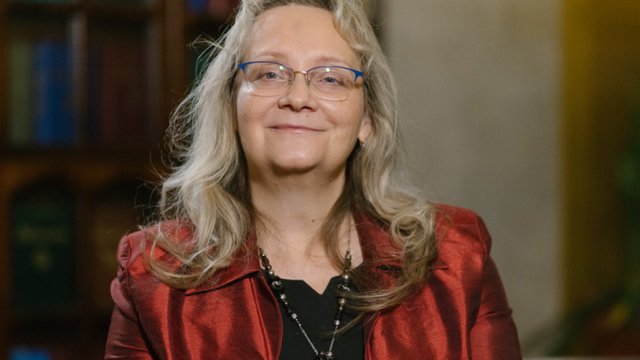Official:
Paul Adrien Maurice Dirac. August 8, 1902 – October 20, 1984. English theoretical physicist, one of the founders of quantum mechanics. Winner of the 1933 Nobel Prize in physics. Member of the Royal Society of London and a number of academies of sciences, including being a foreign member of the USSR Academy of Sciences.
Life and Work:
1. “A physical law must possess mathematical beauty,” the English physicist Paul Dirac argued. The very Dirac whom the great Niels Bohr called the purest soul of all physicists.
2. In the Dirac surname, the accent should be placed on the last syllable. The famous scientist’s father, Charles Adrien Ladislas Dirac graduated from the University of Geneva and only then moved to England. He married there, and the future famous physicist, who was named Paul Adrien Maurice, was born. It happened in Bristol in 1902.
3. His father taught French and demanded that only French be spoken at home. Many researchers believe that it was the reason for Paul Dirac’s well-known taciturnity and tendency to think in solitude.
4. The boyhood years of the future father of quantum mechanics fell on World War I. Back then, people learned and grew up quickly: at the age of sixteen, Paul entered the Engineering Department of the University of Bristol.
5. Later, Dirac thanked fate for the right choice: “If it were not for my engineering education, I would have probably never succeeded in my subsequent activities.”
6. One should not think that engineering education was the end. For two years, Paul Dirac unofficially attended classes at the Mathematics Department of the University of Bristol. He passed the final exam with such brilliance that he received a university scholarship and a grant from the Bristol Department of Education. Dirac made good use of the money: he entered the Cambridge University graduate school.
7. Dirac’s doctoral dissertation was named rather bluntly: Quantum Mechanics.
8. The list of Paul Dirac’s achievements is long. He worked on quantum statistics, a relativistic theory of electron motion, which predicted the positron and the annihilation and birth of pairs; he came up with a “stick with one end,” that is, a hypothetical particle with a magnetic charge – the Dirac monopole.
9. For all this, Paul Dirac and Erwin Schrödinger were awarded the Nobel Prize in 1933 “for the discovery of new productive forms of atomic theory.”
10. He did not want to take the Nobel Prize, because he hated advertising, but Ernest Rutherford persuaded him to accept the prize, putting forward an irresistible argument: refusal would be a much louder advertising.
11. Dirac preferred working alone and avoided supervising graduate students. Throughout his lifetime, he trained no more than a dozen students, mostly during World War II, when there was no way to avoid this work. According to one of the students, Dirac treated the students according to the “drown or swim” principle.
12. During World War II, Dirac advised scientists working on nuclear topics.
13. Dirac liked Agatha Christie’s detective stories, but when asked by reporters about his hobby, he replied, “To think,” as befits a true scientist.
14. Paul Dirac knew how to think: his colleagues noted the non-trivial nature of his associations, scientific attitude even to problems remote from science, and the absolutely rigorous and clear expression of thoughts.
15. Like all great scientists, Dirac was awkward and absent-minded. When he married, he introduced his wife to his acquaintances as the physicist Wigner’s sister, not mentioning that she was his wife.
16. Dirac’s desire for absolute accuracy has become part of scientific folklore. One day, after speaking at a seminar, he addressed the audience: “Any questions?” One of the attendees raised their hand: “I don’t understand how you came to this expression.” “That’s a statement, not a question,” Dirac replied. “So, any questions?”
17. Dirac did not smoke, did not drink alcohol, was indifferent to comfort and food. Another great man, Wolfgang Pauli, joked about his atheism: “There is no God, and Dirac is his prophet.”
18. Dirac traveled extensively, visiting universities in Japan, the USSR, and the United States. He even had a chance to work in America after leaving the chair at Cambridge, which was once occupied by Isaac Newton. Until the end of his life, Dirac worked as a professor at the University of Florida.
19. The Nobel Prize winner in physics Abdus Salam described Dirac exhaustively: “Paul Adrian Maurice Dirac was undoubtedly one of the greatest physicists of this or of any century. In three decisive years, 1925, 1926, and 1927, with three papers, he laid the foundations, first of the Theory of Quantum Mechanics, second of the Quantum Theory of Fields, and third — with his famous equation of the electron — of the Theory of Elementary Particles... No human being, except for Einstein, has exerted such a decisive influence in such a short period of time on the development of physics in this century.”
20. Dirac wrote the quoted phrase about the mathematical beauty of physical laws on a blackboard when he was giving a lecture at Moscow State University.






















